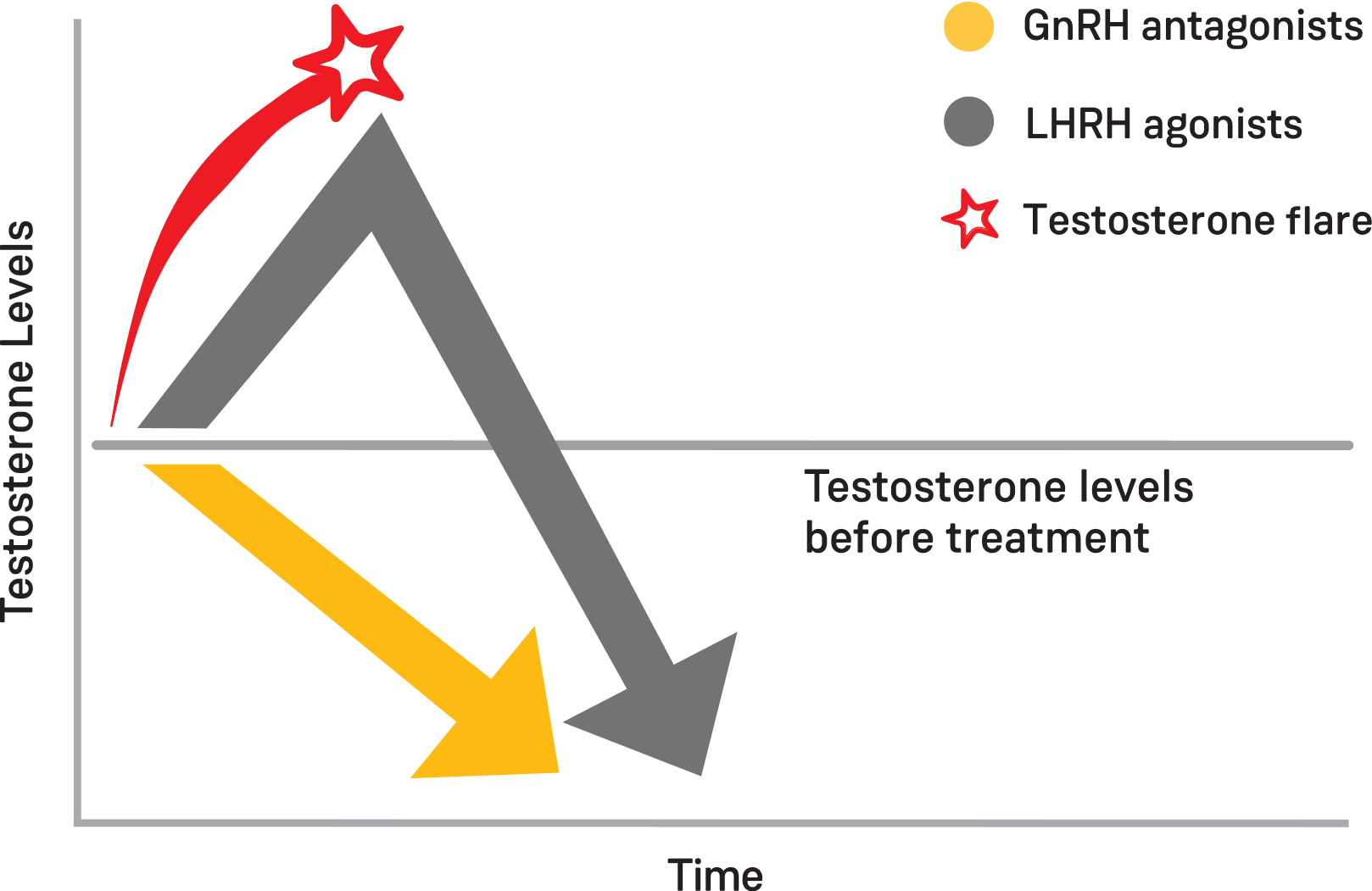I want straight talk
about advanced prostate cancer
Making sense of your diagnosis
When you were diagnosed with advanced prostate cancer, you probably heard the doctor say things like recurrent, locally advanced, or metastatic. Here's what it all means:
Recurrent
Prostate cancer has returned, following initial treatment with radiation therapy or surgery. This is found by rising PSA* level, biopsy, or scan.
Locally Advanced
Prostate cancer has spread to the tissues near the prostate.
Metastatic
Prostate cancer has spread away from the prostate into other parts of the body (bones, liver, lungs, etc).
 Is this true or false?
Is this true or false? True
True False
FalseAbout androgen deprivation therapy
Androgen deprivation therapy is a type of hormone therapy that lowers testosterone
Testosterone is the male hormone that most prostate cancers need to grow. That's why advanced prostate cancer is often treated with hormone therapy, which helps lower the amount of testosterone the body makes. Your doctor may talk about a type of hormone therapy called ADT, or androgen deprivation therapy. Understand that ADTs have benefits and risks, so ask your doctor how they may affect you.
There are 2 types of ADT medications—LHRH agonists and GnRH antagonists. LHRH agonists include injection treatments like Lupron Depot® (leuprolide acetate for depot suspension) and Eligard® (leuprolide acetate for injectable suspension). GnRH antagonists include the injection treatment Firmagon® (degarelix for injection) and the pill ORGOVYX.
Lupron Depot is a registered trademark of AbbVie Inc. Eligard is a registered trademark of the Tolmar group. Firmagon is a registered trademark of Ferring B.V.






